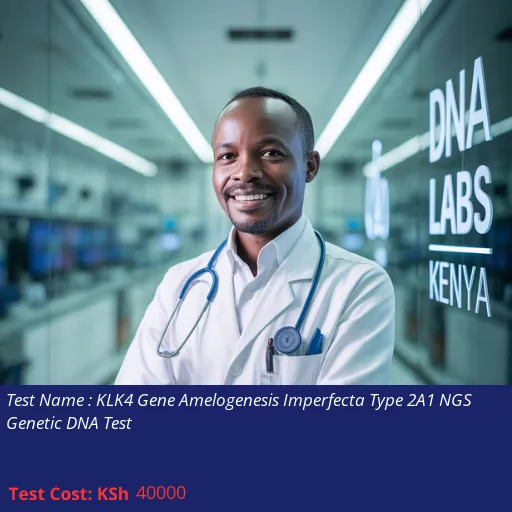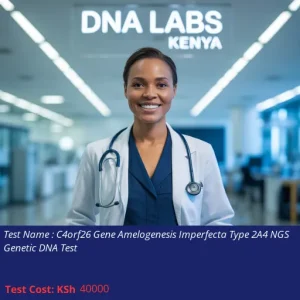KLK4 Gene Amelogenesis Imperfecta Type 2A1 NGS Genetic DNA Test
Introduction
The KLK4 Gene Amelogenesis Imperfecta Type 2A1 NGS Genetic DNA Test is a specialized genetic test designed to identify mutations in the KLK4 gene, which plays a crucial role in the formation of dental enamel. This test is essential for individuals who may have inherited conditions affecting their enamel and are seeking clarity on their genetic health.
What the Test Measures
This test detects specific mutations in the KLK4 gene using advanced Next Generation Sequencing (NGS) technology. By analyzing the genetic material, it helps in diagnosing amelogenesis imperfecta, a genetic disorder characterized by abnormal enamel formation.
Who Should Consider This Test?
Individuals experiencing symptoms such as:
- Discolored or thin enamel
- Increased sensitivity of teeth
- Frequent dental issues
Additionally, those with a family history of genetic disorders related to dental health should consider this test.
Benefits of Taking the Test
- Accurate diagnosis of genetic enamel disorders
- Guidance for treatment options and preventive care
- Informed family planning and genetic counseling
Understanding Your Results
Results from the KLK4 Gene Amelogenesis Imperfecta Type 2A1 NGS Genetic DNA Test will be provided in a clear format, explaining any detected mutations and their implications for your dental health. A genetic counseling session is recommended to help interpret the results and discuss potential next steps.
Test Pricing
| Discount Price | 40,000 KSh |
|---|---|
| Regular Price | 56,000 KSh |
Book Your Test Today!
We have branches across major cities in Kenya, including Nairobi, Mombasa, and Kisumu, and offer home sample collection services for your convenience. To book the KLK4 Gene Amelogenesis Imperfecta Type 2A1 NGS Genetic DNA Test, please call or WhatsApp us at +254746286171.
Turnaround time for results is approximately 3 to 4 weeks, and the sample required can be blood, extracted DNA, or one drop of blood on an FTA card. Ensure to provide your clinical history, and consider a genetic counseling session to draw a pedigree chart of affected family members.







